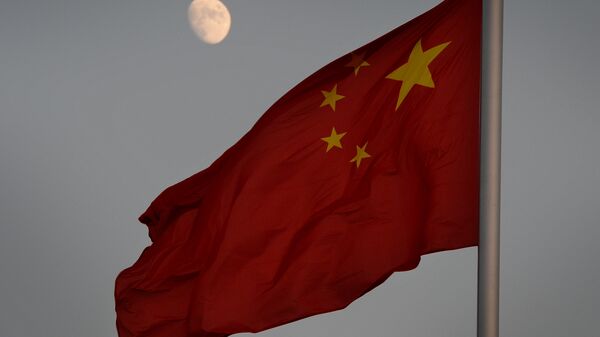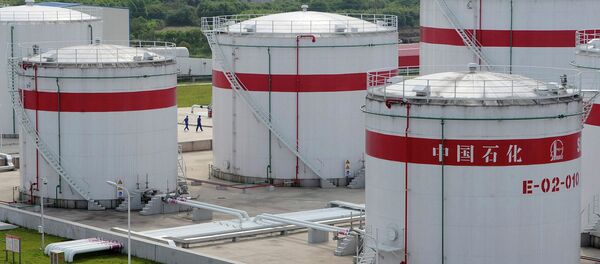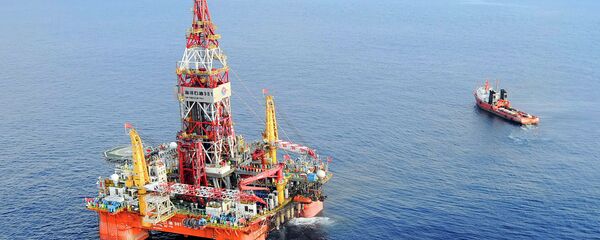The island is planned to be constructed at around 4.5 kilometers from the coast. It will be equipped with a seaport, an airport, sea water desalination plant, power station and a hotel. There are no residential houses planned on the island.
The island will be connected to the Gaza Strip by a bridge. According to Yisrael Katz, this is inherently an economic project, but it carries a strategic and political importance as well. As stated by Katz, the program will greatly facilitate lives of residents of the Gaza Strip as it will be an important step on the path to civil dissociation from Israel.
In an interview with Sputnik, Professor of the Center for the Study of International Relations at China’s University, Yan Mian, said, “If this project will help improve the situation around Gaza Strip, or help Gaza, for example, in terms of fresh water, or construction of the port that will somehow able to eradicate civilian life problems in Gaza, then China will consider taking part in such a project.”
China’s expert from the Diplomatic Academy, Ren Yuanzhe, also shared his views on this matter with Sputnik saying that, “First of all, China attaches great importance to peaceful resolution to the Israeli-Palestinian conflict. Secondly, the construction of the islands can also help pacify the situation in the region.”
The expert further noted that China initiated the establishment of Asian Infrastructure Investment Bank, offered to build interconnection of transport and communication on an international scale. There are already preliminary projects of the AIIB in Bangladesh, Indonesia, Pakistan and Tajikistan.
“Therefore, the future of construction in the Middle East could become a platform for a joint international effort,” Yuanzhe said.
Russia is one of the leading powers that may be able to participate in such a project as Russia has the necessary experience and knowledge about the Middle East, as well as good connections to the heads of State in the region, the Israeli politician Yisrael Katz said.
According to the Washington Post’s report on this initiative, the Jewish state is actively seeking financial partners for the 5 billion dollar project. Chinese participation would reflect the geopolitical aspirations of the economic diplomacy of Beijing.
Talking about China’s geopolitical interests in the region, known Israeli political scientist and president of the Institute of Eastern Partnership, Rabbi Abraham Shmulevich, said “In fact, it is an old idea about the construction of an artificial island. It was put forward many years ago more than a decade ago, by Shimon Peres, then Prime Minister.”
He further said that China has huge investment projects across Africa and the Middle East and has also consistently invested in global transport infrastructure.
“The strategic and economic objectives are clear: to become a real world power, to control the flow of goods and to stop being a country that is completely dependent on Western technology and investment,” Smulevich explained talking about China’s agenda.
He further said that China is already implementing transportation projects in Israel.
“The Chinese always offer very good investment conditions, since the aim is not only to obtain economic benefits, but also geopolitical goals — strengthening the country's influence. China has consistently taken control of the world's transport infrastructure. China’s participation in the Israeli project would be one such example,” the expert said.
When asked what prompted the First Deputy Prime Minister of Israel, Yisrael Katz, to view China as a potential participant of this mega-project, the chief editor of the Tel Aviv publishing house News Week, Leonid Belotserkovski, said, “What pushes them mainly is the fact that the Chinese construct quite fast and deliver a high quality product. I can say that these guys construct marvelously.”
He further said that the Chinese are already involved in building Israeli port of Ashdod which is a new Israeli, modern port.
“The Chinese are generally active in the Israeli economy, especially in the sphere of high technology, where Israel is a world leader. That is a bit dangerous but what can you do,” Belotserkovski said.
He further added that the role of Israel's high-tech development in China is pretty large. In China’s agriculture, a lot is done by the Israeli experts, including breeders, who have special farms. Therefore, the cooperation is mutually beneficial,” the editor concluded.




